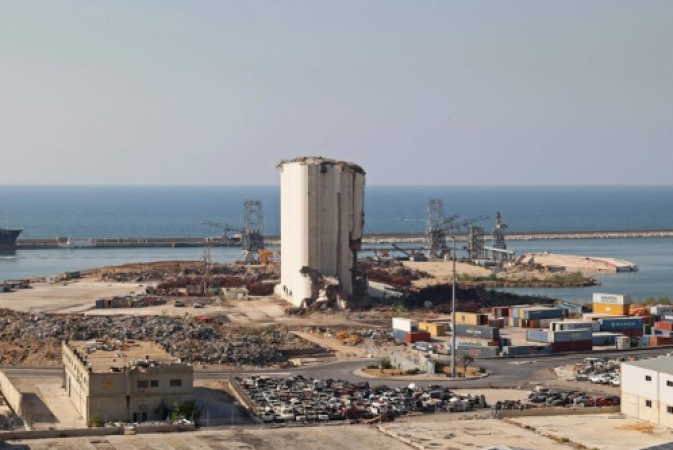
Beirut: On August 4, 2020, Beirut was shaken by one of the largest non-nuclear explosions in history, which destroyed large portions of the Lebanese capital and left more than 220 people dead and at least 6,500 injured.
To the dismay of the families of the victims, the investigation into the traumatic disaster brought on by a massive pile of improperly stored fertiliser is still mired in legal and political wrangling.
In scenes that shook the nation and the world, the enormous explosion, which could be heard as far away as Cyprus, completely destroyed the city of Beirut's districts and much of its port.
Also Read: Leaked Texts Unleash Racist Storm: Finnish Minister Embroiled in Controversy
The explosion measured as 3.3 earthquake magnitude left a crater 43 metres (141 feet) deep.
With mountains of shattered glass covering the roads and bloodied survivors flooding overcrowded hospitals, the disaster spread panic and anarchy.
The fire that started the explosion happened in a warehouse that had been haphazardly storing a sizable stockpile of the industrial chemical ammonium nitrate for years.
The tragedy occurred in the midst of a severe economic crisis, almost a year after large-scale protests broke out against a ruling class that was seen as incompetent and corrupt as living conditions deteriorated.
As a result of intense pressure over the explosion, Prime Minister Hassan Diab steps down on August 10, 2020. In December 2020, Fadi Sawan, the lead investigator looking into the explosion, accuses Diab and three former ministers of negligence. When two of them complain, the investigation is put on hold, and Sawan is dismissed from his position by a judge.
Also Read: Burning Anger Sparks Border Tightening: Sweden's Response to Qur'an Incidents
In July 2021, Tarek Bitar, a new investigating magistrate, moves to question four former ministers, but parliament refuses to lift their immunity. After numerous court challenges, he is forced to put the investigation on hold.
Hezbollah, a potent Shiite movement, and Amal, one of its allies, call for protests in October 2021 to demand Bitar be fired.
During the rally, gun battles result in the deaths of seven people.
Bitar picks up his investigation again at the end of 2021, but less than two weeks later he is forced to put it on hold once more due to new legal issues. Several grain silos damaged in the explosion collapse in a cloud of dust on August 4, 2022, serving as a traumatic reminder of the catastrophe that occurred exactly two years earlier.
Days earlier, a fire started when the remaining grain stocks fermented and caught fire in the summer heat, causing other sections of the silos to collapse.
13 months after his investigation is put on hold, in January 2023, Bitar resumes his work and accuses Prosecutor General Ghassan Oueidat and seven other individuals of probable intent to commit murder, arson, and other crimes.
Bitar is accused of disobedience and "usurping power" by Oueidat, but the investigator won't back down.
Also Read: Spanish Government to Evacuate Over 70 Citizens from Niger Amid Escalating Security Threat
The investigation is halted, and no one has yet been held accountable, when Oueidat also orders the release "of all those detained" in connection with the port explosion.
Families of the victims and human rights organisations call on the UN to establish a separate fact-finding mission.